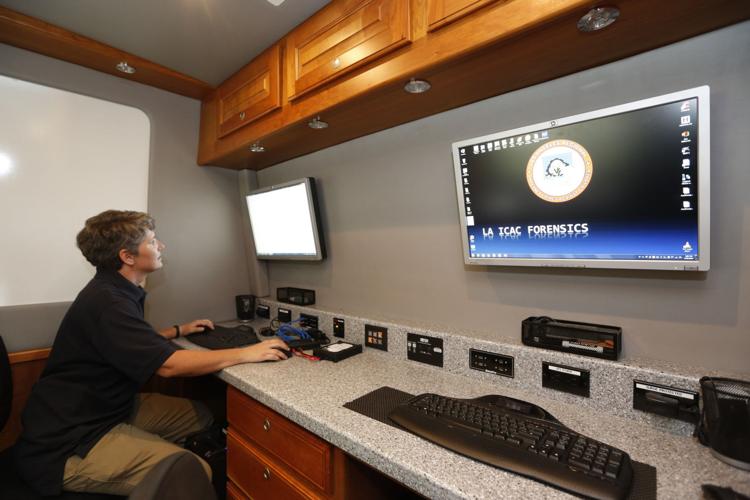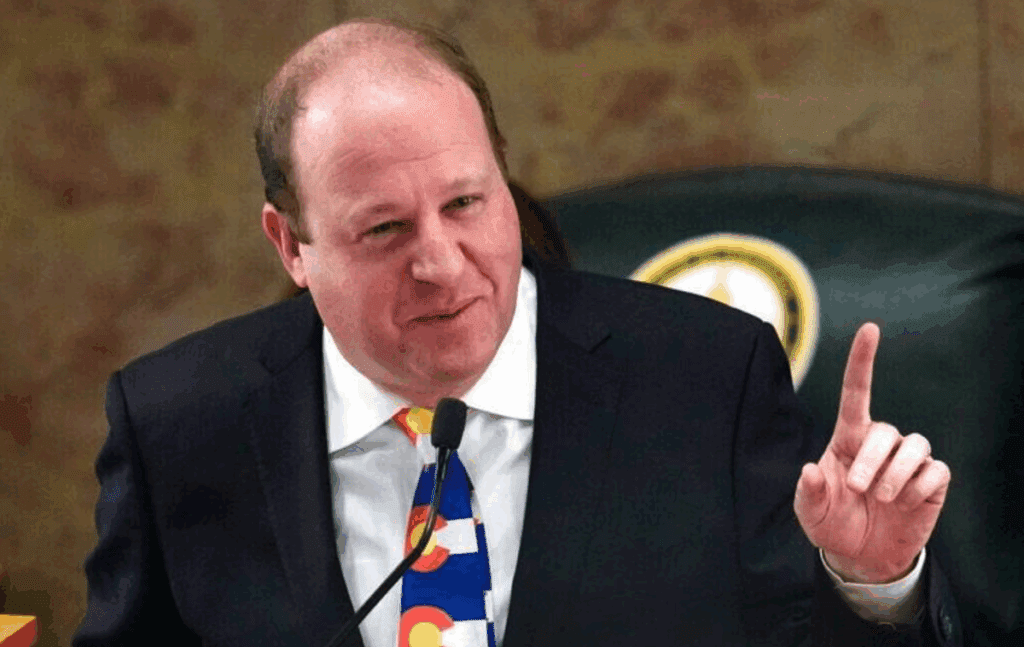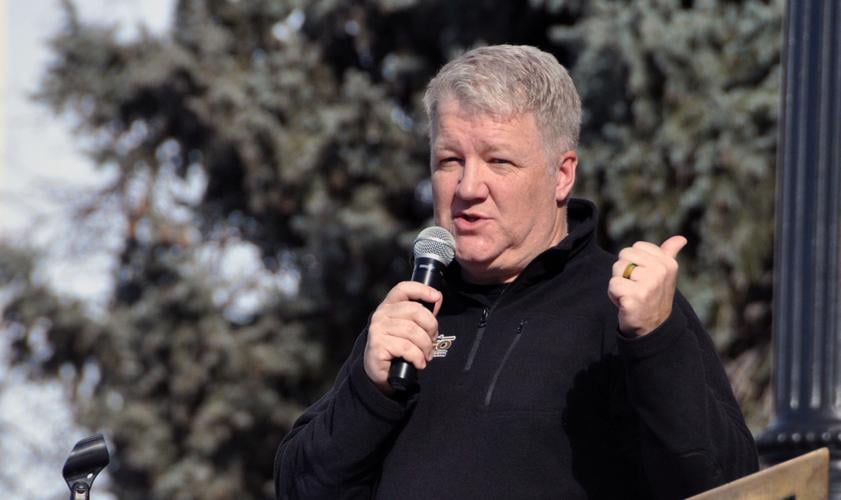Colorado bill targets social media platforms used by kids, teens


Los Angeles Police Department Internet Crimes Against Children Task Force detective Shannon Geaney demonstrates computer forensics on a hard drive at a mobile lab, after authorities throughout Southern California announce the arrests of more than 275 child predators during a news conference in Los Angeles Thursday, June 26, 2014. Law enforcement conducted the operations in Los Angeles, Orange, San Bernardino, Santa Barbara and Ventura counties. (AP Photo/Damian Dovarganes)
Damian Dovarganes
A measure in the Colorado state Senate aims to impose a host of requirements on social media companies, including age verification, tools and settings for parents and a prohibition against practices that are “not in the best interest of juveniles.”
Notably, the proposal mandates social media companies to respond to inquiries from law enforcement agency within three days — and to fulfill such requests within 30 days.
The proposed guardrails would help create a safer and healthier online environment for children, the bill’s sponsors said, adding that “unregulated” social media platforms have wreaked havoc on kids’ mental health and made it dangerously easy for sexual predators to target them.
Senate Bill 158, sponsored by Sens. Chris Hansen, D- Denver, and Dafna Michaelson Jenet, D- Commerce City, also includes requirements for user-friendly content flagging and against illicit activities on social media platforms.
The legislation reflects a broader national conversation about the responsibility of social media companies in protecting underage users.
“As the parent of two teenagers, I’ve seen firsthand the devastating impact unfettered access to social media can have on our youth,” Hansen said. “Without laws forcing them to protect our kids, social media companies will continue to fall short. This bill will put critical guardrails around these companies, and make Colorado a national leader in the fight to create a safer and healthier online environment for our kids.”
The bill requires all social media companies to publish their platform-specific policies by July 1, 2025. These policies must include contact details for users to send questions and inquiries, a committed response process for responding to those questions and flagged content, and statements prohibiting illicit activities, including the promotion, sale, and advertising of illegal drugs, the sale of firearms in violation of state or federal law, and engaging in sex trafficking.
Social media companies would also be required to submit yearly reports to the Colorado Attorney General, detailing their current policies, a description of a platform’s content moderation and age verification practices, and data on how juveniles in Colorado use their platform.
The bill also bars social media companies from notifying users when their account is under investigation by law enforcement. Additionally, it prohibits companies from using manipulative techniques to prompt minors to divulge personal information beyond what’s “reasonably expected” or from disabling parental controls or privacy features.
Any breach would be treated as deceptive trade practices under the Colorado Consumer Protection Act.
Colorado isn’t the only state exploring restrictions on the use of social media platforms by children. In Florida, state lawmakers are moving ahead with a first-of-its-kind proposal that would reshape how nearly every Floridian uses the internet. Kids under 16 would be forbidden from being on social media — and every Floridian who wants to use social media would have to submit some sort of ID, or submit to a facial scan, to prove their age.
The Florida legislation is a top priority of House Speaker Paul Renner, who believes social media’s effects on children is akin to opioids or cigarettes. The bill, which passed the state House last month, has wide bipartisan support.
Meanwhile, some hospitals have launched awareness campaigns on the risks of social media to children.
Children’s Hospital Colorado, for example, posted an article on its website’s parental resources page explaining that kids are not as well-equipped to handle the potential dangers of social media as adults are.
“Most adults have enough perspective to know that (things on social media) don’t necessarily reflect reality,” the hospital said. “Kids, on the other hand, don’t have that insight yet. This leaves them far more susceptible to emotions such as associating gunfights with heroism, or social media ‘likes’ with self-esteem.”
Experts have said that a “mental health tsunami” is affecting kids and teens, including depression, addiction and eating disorders, citing research that shows a correlation between the internet, social media and an increase among children for suicidal thoughts and other health-related concerns.
At the federal level, U.S. Sen. Michael Bennet, along with Senators Lindsey Graham R – South Carolina, Elizabeth Warren D- Mass. and Peter Welch D- Vt., is pushing for a new federal agency that would have oversight over large technology firms, notably citing concerns over children’s health and safety.
“Over the past fifteen years, social media platforms have wreaked havoc on our children’s mental health, undermined user privacy, and distorted market incentives,” the federal legislators said. “Big Tech companies have provided new vehicles for drug trafficking, harassment, and the sexual abuse and exploitation of children,” the legislators wrote. “We believe this moment requires a new federal agency to protect consumers, promote competition, and defend the public interest.”
Michaelson Jenet said it’s “past time we stand up and say enough is enough.”
“Unregulated social media platforms have wreaked havoc on our kids’ mental health while making it dangerously easy for predatory adults to target Colorado children and teens for sexual exploitation — and it’s only getting worse,” Michaelson Jenet said. “I am proud to champion this legislation that will better protect our kids and address the toxic role social media platforms play in young people’s lives.”
The bill is the second introduced this session addressing children’s use of social media. House Bill 1136 focuses on the potential negative impacts of social media on mental health. That bill is set for a hearing before the House Education Committee on February 22.
The Associated Press contributed to this article.












